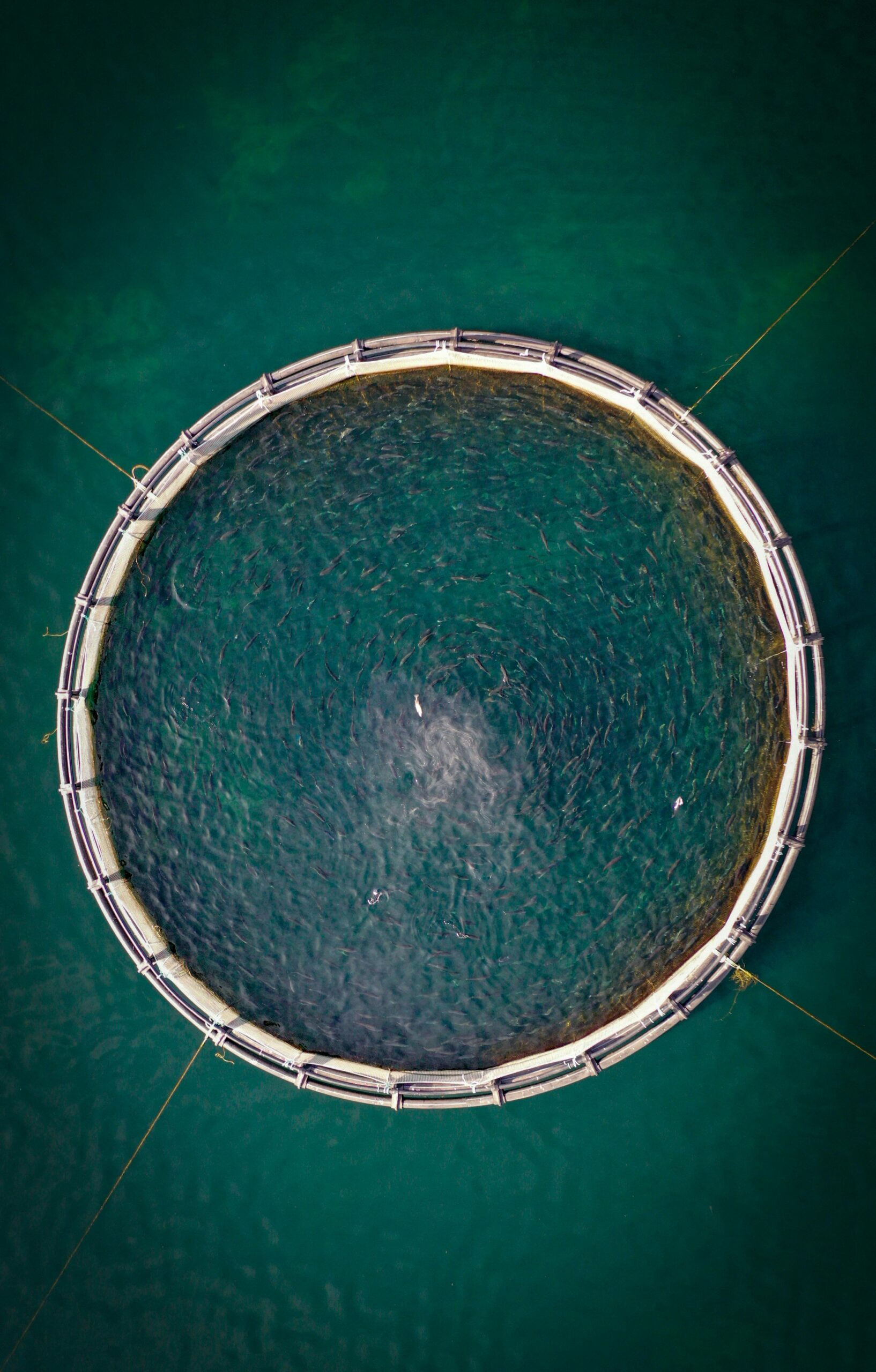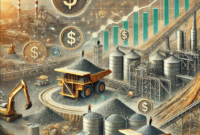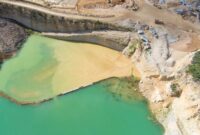The global demand for seafood has been steadily rising, making aquaculture one of the fastest-growing sectors in food production. As wild fish stocks become increasingly depleted, sustainable fish farming offers a lucrative alternative for meeting global seafood needs. Investors are turning their attention to aquaculture investments, recognizing the potential for significant returns. In the modern era, technologies like Artificial Intelligence (AI) and advancements in space exploration are also reshaping the way aquaculture operates, pushing sustainable fish farming to the forefront of the industry.
In this article, we’ll dive into the world of aquaculture investments and explore how sustainable fish farming, when combined with AI and insights from space exploration, is creating a profitable yet eco-friendly future for investors.
The Rising Demand for Aquaculture Investments
Aquaculture, also known as fish farming, has become essential in meeting the increasing demand for seafood worldwide. According to the Food and Agriculture Organization (FAO), aquaculture now accounts for over 50% of the fish consumed globally. With wild fish stocks on the decline, aquaculture provides a sustainable solution to ensuring a stable supply of seafood.
Investors are attracted to aquaculture not just for the environmental benefits, but also because of its profitability. Sustainable fish farming techniques, which include controlling water quality, optimizing feeding practices, and maintaining healthy fish stocks, can yield high returns with minimal environmental impact. These practices help reduce waste and increase fish production efficiency, making the aquaculture industry highly attractive to those looking for long-term, sustainable investment opportunities.
The Role of Artificial Intelligence in Aquaculture
Artificial Intelligence is revolutionizing the aquaculture industry. AI systems are being used to monitor fish behavior, optimize feeding schedules, and ensure water quality is maintained at optimal levels. By using AI, fish farmers can gather large amounts of data in real-time, analyze trends, and make adjustments quickly. This leads to better fish health, higher yields, and reduced operational costs.
AI-powered feeding systems, for example, can detect when fish are hungry or full, thereby preventing overfeeding and reducing food waste. Overfeeding not only leads to unnecessary costs but also contributes to water pollution. AI systems help solve this problem by precisely determining the amount of food needed for each batch of fish, resulting in more efficient resource use.
Furthermore, AI can detect signs of illness in fish early on. By monitoring changes in behavior, swimming patterns, or even water color, AI can alert fish farmers to potential health issues, allowing them to take immediate action. This reduces fish mortality rates and increases the overall productivity of the fish farming operation.
Space Exploration and Aquaculture: A New Frontier
It may come as a surprise that space exploration has a role to play in sustainable fish farming. However, insights gained from space research are proving to be valuable in aquaculture. Satellite imagery and remote sensing technologies, developed through space exploration, are now being applied to monitor aquatic ecosystems on Earth.
For instance, satellites can track ocean temperatures, water quality, and pollution levels, providing crucial data to aquaculture operations. This helps fish farmers predict changes in environmental conditions that could affect their operations, such as harmful algae blooms or water temperature fluctuations. By using satellite data, fish farms can optimize their locations and adjust farming practices to mitigate the impact of environmental stressors, ensuring a more sustainable and productive operation.
In addition, space exploration has advanced the development of closed-loop systems, which are now being used in aquaculture. These systems, inspired by technologies developed for long-term space missions, allow for the recycling of water and nutrients in a controlled environment. This technology reduces water consumption and minimizes the environmental footprint of fish farms, making them more sustainable and efficient.
Sustainable Fish Farming: A Win-Win for the Environment and Investors
Sustainability is a key concern for modern investors, and aquaculture offers a way to meet this demand while generating substantial profits. Sustainable fish farming focuses on minimizing the environmental impact of aquaculture through practices such as reducing the use of antibiotics, minimizing pollution, and protecting local ecosystems.
With AI and insights from space exploration, sustainable fish farming is becoming even more efficient. By leveraging technology, fish farmers can optimize their operations, reduce costs, and improve yields, making aquaculture investments increasingly attractive to environmentally-conscious investors.
Moreover, sustainable aquaculture contributes to food security by ensuring a reliable and eco-friendly source of seafood. As the global population continues to grow, the need for sustainable food production will become even more critical. Investors who recognize this trend and invest in sustainable fish farming will not only profit but also contribute to a more sustainable future.
The Financial Benefits of Investing in Aquaculture
Aquaculture investments offer promising financial returns due to the high demand for seafood and the efficiency gains achieved through modern technologies. The global aquaculture market is expected to reach $275 billion by 2027, reflecting a compound annual growth rate (CAGR) of 7.4%. As consumer preferences shift towards sustainably sourced seafood, aquaculture operations that prioritize environmental responsibility will see even greater demand.
Investors can also take advantage of government incentives and subsidies aimed at promoting sustainable fish farming practices. Many governments around the world are supporting the development of eco-friendly aquaculture operations, offering tax breaks, grants, and low-interest loans to encourage investment in the sector. These incentives can significantly reduce the financial risks associated with aquaculture investments, making them an attractive option for both individual and institutional investors.
Conclusion
Aquaculture investments present a unique opportunity to profit from the growing global demand for seafood while promoting sustainable practices. With the integration of Artificial Intelligence and advancements from space exploration, sustainable fish farming is becoming more efficient, cost-effective, and environmentally friendly. Investors who choose to invest in sustainable aquaculture are not only setting themselves up for significant financial returns but also contributing to the development of a more sustainable and eco-conscious food system.
FAQ
Q: What is aquaculture? A: Aquaculture, also known as fish farming, is the practice of cultivating fish, shellfish, and other aquatic organisms in controlled environments for human consumption.
Q: How is Artificial Intelligence used in aquaculture? A: Artificial Intelligence is used to monitor fish behavior, optimize feeding schedules, and maintain water quality. AI systems help fish farmers increase efficiency and reduce costs by analyzing data and making real-time adjustments.
Q: What role does space exploration play in aquaculture? A: Space exploration has contributed to the development of technologies such as satellite monitoring and closed-loop systems. These technologies help fish farmers monitor environmental conditions and improve sustainability in their operations.
Q: Why should I invest in sustainable fish farming? A: Sustainable fish farming offers high financial returns due to the increasing global demand for seafood. It also promotes environmentally responsible practices, which are becoming increasingly important to consumers and investors alike.
Q: Is aquaculture a profitable investment? A: Yes, aquaculture is a highly profitable investment, especially when sustainable practices are used. The global aquaculture market is growing rapidly, and advances in technology are making fish farming more efficient and cost-effective.




